The world is in the midst of a climate crisis that requires immediate action. Composting offers an effective solution to combat this global issue, yet many remain unaware of its potential power.
Employing emotive language and imagery, it can be argued that composting is not only beneficial for the environment but also provides individuals with a sense of belonging – an opportunity to take responsibility and make positive changes within their communities.
By breaking down organic matter into nutrient-rich soil, composting has the capacity to promote growth, reduce waste and ultimately lead to long-term environmental sustainability. This article explores the benefits of composting as a means to combat climate change.
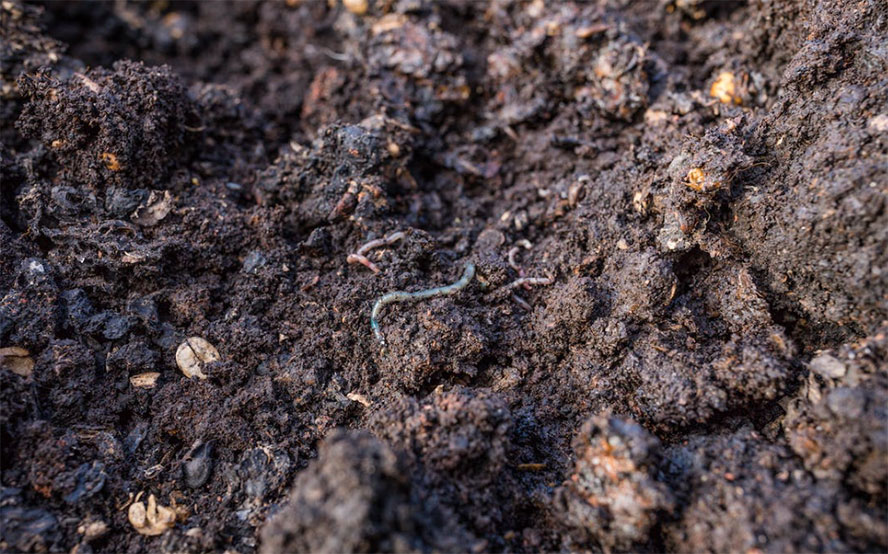
Definition Of Composting
Composting is a natural process of decomposition and recycling organic material into nutrient-rich soil. It involves the breakdown of biodegradable materials such as food scraps, leaves, straw, grass clippings and other yard waste by microorganisms including bacteria, fungi and earthworms.
As these organisms feed on the organic matter, they generate heat which helps to accelerate the composting process. The end result is a dark humus-like substance known as “compost” that can be used to fertilize plants or replenish soils depleted from years of intensive farming practices.
The practice of composting has become increasingly popular in recent years due to its ability to combat climate change. Composting reduces greenhouse gas emissions by diverting organic material from landfills where it would otherwise break down anaerobically (i.e., without oxygen) and release methane—a potent global warming gas—into the atmosphere.
By burying food scraps in compost piles instead, we are able to reduce our reliance on synthetic fertilizer while simultaneously improving soil health and fertility for crop production. Composting helps conserve water; when added to soil, it increases moisture retention which allows plants to grow faster with less need for irrigation.
Types Of Composting
Composting has become an increasingly popular way to combat climate change, offering a sustainable solution for reducing the amount of waste produced.
There are various types of composting that can be used depending on one’s needs and capabilities; each offers its own distinct benefits when it comes to fighting global warming. From backyard bins to large-scale facilities, anyone can join in the effort against climate change with composting.
Backyard or home composting is a great way to quickly and easily reduce the amount of organic material going into landfills while simultaneously creating nutrient-rich soil amendments for gardens and lawns.
Home systems are typically low-cost and require minimal maintenance, making them ideal for those who want to make a positive environmental impact without having to invest too much time or money. In fact, many municipalities provide free information about setting up small scale composters at home.
Large-scale industrial operations offer another effective method for diverting organic materials from landfills by collecting source separated organics (SSOs) such as food scraps and yard trimmings from businesses and households alike.
These systems often employ anaerobic digestion which produces energy from biodegradable feedstocks, providing yet another avenue for reducing greenhouse gas emissions associated with burning fossil fuels. Industrial operations also have the capacity to process more diverse materials than smaller scale setups like home bins, opening the door for even greater reductions in landfill waste and GHG production.
The ability to choose between different methods of composting makes it easier than ever before for individuals and organizations alike to do their part in combating climate change through responsible waste management practices. With so many options available today, everyone can find a system that works best for them while helping protect our planet’s future sustainability.
Benefits To Plant Growth
Composting has numerous advantages for plant growth. Compost is a valuable source of nutrients, and its use can improve soil structure and water-holding capacity. It provides essential minerals such as nitrogen, phosphorus, potassium, calcium, sulfur, magnesium, zinc, and iron that plants need to grow healthy roots and foliage. Compost also helps aerate the soil by increasing porosity and improving drainage. Here are some other benefits:
- Improved Soil Structure: Compost aids in loosening heavy clay soils so oxygen can reach plant roots more easily; it also adds organic matter which increases water retention ability in sandy or light soils. The improved soil structure makes it easier for seedlings to take root and reduces erosion due to rainwater run-off.
- Nutrient Cycling: As microorganisms break down the compost material into smaller particles they release useful minerals into the soil environment – this process of nutrient cycling is essential for sustaining long-term fertility levels without needing chemical fertilizers.
- Disease Protection: When properly prepared compost is used around plants it acts like an inoculant against certain diseases by outcompeting pathogens in the soil with beneficial bacteria that create a healthy environment for plants to thrive in.
These three benefits illustrate how incorporating compost into garden beds or potting mixes can help promote healthier plants with better yields over time – this ultimately leads to increased food security while reducing our reliance on synthetic fertilizers and pesticides which can be harmful both environmentally and economically.
Reduction In Greenhouse Gases
Composting is an effective way to combat climate change due to its ability to reduce greenhouse gases in the atmosphere. Greenhouse gases, such as carbon dioxide (CO2), methane (CH4) and nitrous oxide (N2O), have a direct impact on global temperature increases. Composting helps decrease these emissions through three key processes: decomposition of organic matter, soil sequestration of nutrients, and energy conservation.
| Process | Benefit |
|---|---|
| Decomposition | Reduces CO2, CH4, N2O emissions from landfills |
| Sequestration | Soil retains more nutrients which improves water quality, reducing runoff pollution |
| Energy Conservation | Requires less energy for fertilizer production leading to lower levels of pollutants emitted during transportation |
The process of composting reduces the amount of waste sent directly to landfills; this eliminates many greenhouse gas-producing elements that would otherwise be produced by traditional landfill processes. When composted material is returned to the soil it can help store carbon naturally within the earth instead of letting it escape into the atmosphere.
This reduces atmospheric concentrations of both CO2 and CH4, two major contributors to global warming. Finally, composting requires far fewer resources than producing synthetic fertilizers or chemical pesticides for agricultural purposes; this conserves nonrenewable sources of energy while also lowering associated air pollution levels. Ultimately, using compost as a natural source has numerous benefits that make it an ideal tool in combating climate change.
Carbon Sequestration
Composting can be an effective tool to reduce the amount of carbon dioxide in Earth’s atmosphere and combat climate change. Carbon sequestration is the process of capturing atmospheric carbon, storing it in a long-term form, and thereby reducing its availability to react with other elements such as oxygen.
Composting helps capture large amounts of CO2 from entering the atmosphere by sequestering this gas within organic matter. This reduces the amount of greenhouse gases that contribute to global warming and provides important benefits for the environment.

The production of compost also has several positive effects on soil health. The increased microbial activity resulting from composting increases the fertility of soils and their ability to hold onto water better; both factors help plants grow better and more resiliently.
Best of all, compost improves soil structure, making it easier for roots to penetrate deeply into the ground while providing essential nutrients like nitrogen, phosphorus, and iron needed for healthy plant growth.
When applied correctly to crops or gardens, compost acts as a natural fertilizer that allows plants to take up more moisture which further enhances their resilience against drought conditions caused by climate change. As these benefits show, utilizing compost offers many advantages towards mitigating global warming and creating healthier ecosystems around us.
Improved Soil Structure And Quality
Thus far, carbon sequestration has been discussed as a viable solution to combat climate change. However, another strategy is composting which can also positively contribute to this cause. Composting involves the breakdown of organic matter into usable nutrients for soil. This process results in improved soil structure and quality that provides numerous benefits – both environmental and economic.
Composting improves soils by adding vital macro- and micro-nutrients such as nitrogen, phosphorus and potassium back into the environment. Plants use these essential elements as building blocks to produce proteins, enzymes and other components necessary for growth and development.
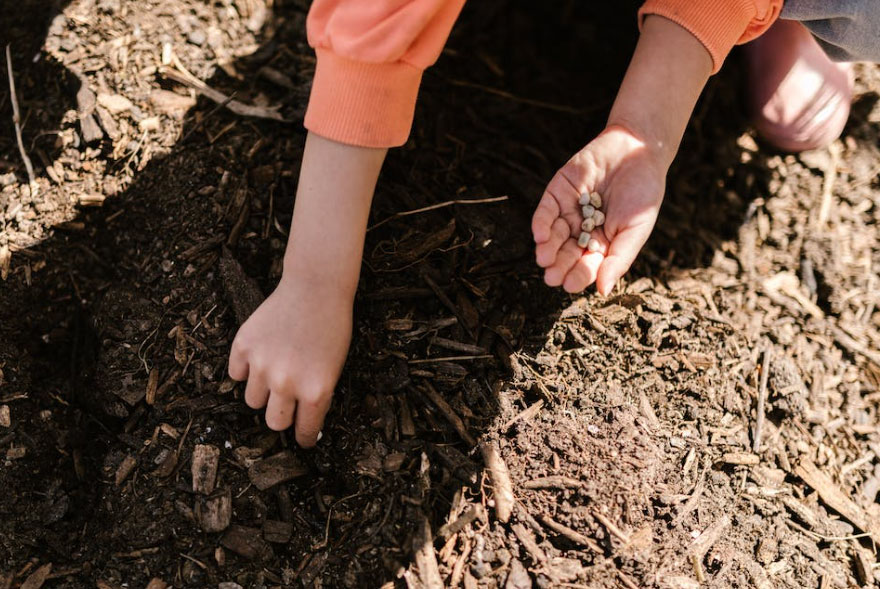
Compost helps reduce water run off by improving the ability of soil to absorb it. Soils with greater moisture retention have higher levels of microbial activity leading to further decomposition of organic materials thus releasing more nutrients over time. Lastly, compost increases aeration in the soil which allows plant roots access to oxygen, providing them with better conditions for growth.
The combined effects of improved nutrient content, enhanced moisture absorption capacity and increased air flow makes compost an invaluable tool for farmers; resulting in healthier crops that are less prone to disease or pests outbreaks while requiring fewer inputs like fertilizers or pesticides – ultimately reducing costs associated with farming operations.
Due its unique composition, compost acts as a natural fertilizer that releases slowly into the surrounding environment without causing negative impacts on nearby ecosystems unlike synthetic alternatives used in conventional agriculture practices today.
Reduction In Water Usage
Composting is a tool that can be used to combat climate change. In addition to helping reduce greenhouse gas emissions, composting also helps conserve water resources. This is especially important in areas with limited water supplies.
First, composting reduces the amount of water needed for crop production. By adding organic matter to soil, crops are better able to retain moisture and require less irrigation from farmers. When crop residues are left on fields instead of being removed, they help slow down runoff and reduce erosion, allowing more water to soak into the ground rather than running off unused.
Second, composting minimizes the need for chemical fertilizers which have high water requirements during the manufacturing process. Compost provides essential nutrients for plant growth without needing additional chemicals or synthetic inputs such as fertilizer. Furthermore, composted materials release these nutrients slowly over time so plants get just enough nutrition without wasting any precious resources like water or energy.
Third, using compost encourages healthy soils which act like sponges and absorb large quantities of rainwater before it runs off into rivers or lakes carrying pollutants with it. Healthy soils are filled with microorganisms that provide structure and stability while increasing their capacity to store both air and moisture within them.
Fourthly, compost has been proven effective at reducing stormwater runoff by up to 50%. When applied correctly around buildings and structures or even along streets or parking lots, compost acts as an organic filter trapping sediment particles thus preventing them from entering local waterways where they could pollute drinking supplies.1
In summary then, using compost not only supports healthier ecosystems but also conserves vital fresh water resources making it an invaluable weapon against climate change on multiple fronts.
Conservation Of Natural Resources
Composting is an important tool in the fight against climate change. By composting organic waste, such as kitchen scraps and yard trimmings, we are able to reduce emissions of methane gas from landfill sites. This can help to slow global warming by reducing greenhouse gases released into the atmosphere.
It helps conserve natural resources that would otherwise be used for fertilizers or other soil amendments. Compost helps build healthy soils which result in better water retention and less runoff pollution entering our waterways.
Compost also serves as a nutrient-rich fertilizer for plants and gardens, helping them grow with fewer inputs of synthetic chemicals while still providing essential nutrients needed for healthy growth. The use of compost helps maintain biodiversity through improved habitat management, allowing more native species to flourish in their environment.
Avoidance Of Landfill Waste
The conservation of natural resources is an important step in combating climate change, and composting provides a great opportunity to further this effort.
Composting can help reduce the amount of waste sent to landfills, which produce greenhouse gases that contribute to global warming. By creating nutrient-rich soil from organic materials, composting prevents these materials from sitting idle in landfills where they would otherwise decompose into harmful emissions.
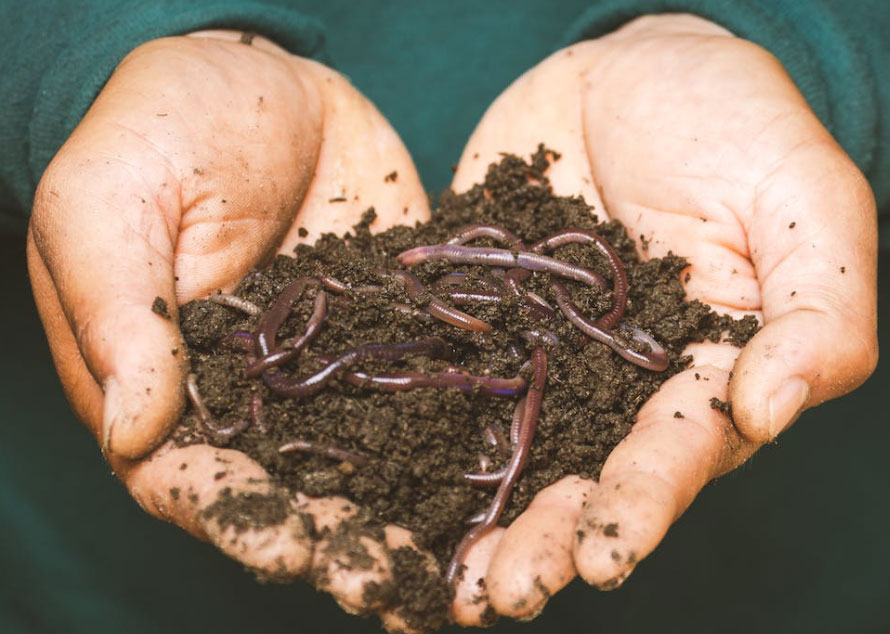
Composting also helps plants absorb more carbon dioxide from the atmosphere, making it a powerful tool for reducing climate change effects. When combined with other methods such as reduced fossil fuel consumption and increased renewable energy usage, composting offers a holistic approach to tackling our changing planet.
By recycling organic material through composting instead of disposing them in landfills, we are taking steps towards sustainability and preserving valuable landfill space. With its many benefits, composting is one way individuals can take action against climate change while helping the environment at the same time.
How To Get Started With Composting
Composting is an easy way to reduce household waste and help combat climate change, yet many people may not know how to get started. To begin composting, there are several items that will be needed, such as a large container or bin with holes for ventilation, a thermometer, kitchen scraps, shredded paper and leaves. The container should be placed in a sunny spot outdoors as the sun helps heat up the mixture which speeds up decomposition.
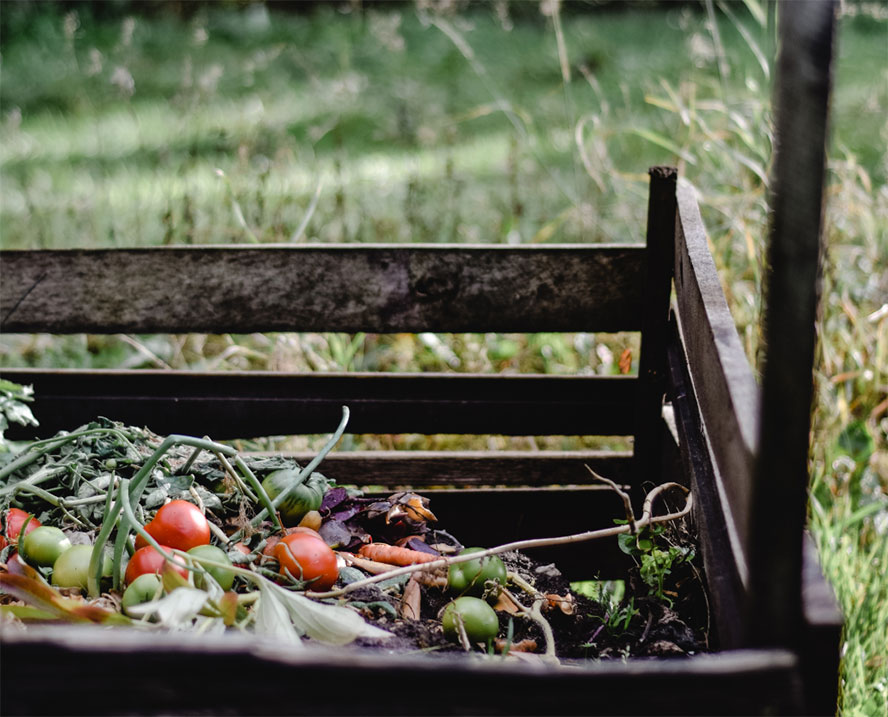
Once all of the necessary materials have been gathered it is time to create the compost pile. Kitchen scraps can be added directly into the compost bin but all other material should first be chopped or shredded so it breaks down more quickly. Then layer browns (dry leaves and shredded paper) and greens (kitchen scraps and grass clippings) in alternating layers about 6 inches thick.
It is important when constructing the pile to keep it moist by misting with water until damp like a wrung-out sponge. Finally, turn over the pile every couple of weeks using a pitchfork or shovel so air can reach throughout allowing beneficial bacteria to thrive and speed up decomposition even further.
With these steps taken one has created their own backyard compost pile ready to start breaking down organic matter while helping fight climate change!
Important Considerations When Composting
Although composting can be a beneficial tool to combat climate change, some may have reservations due to the potential mess it could make in their garden. However, with proper planning and management of the composting process well as following the guidelines outlined by local authorities, this risk can be minimized.
The table below outlines the important considerations when deciding whether or not to start composting:
| Consideration | Pros | Cons |
|---|---|---|
| Cost | Low cost/Free | Equipment costs associated with large-scale operations |
| Environmental Impact | Reduces methane emissions from landfills; reduces need for chemical fertilizers | Can produce odors if not managed correctly |
| Space Requirements | Small space requirements; Can use indoor containers for small spaces | |
| Ease of Use | Requires constant maintenance & monitoring; Requires knowledge about optimal temperature conditions for different materials |
For those who are ready to take on the challenge, there are plenty of resources available that provide detailed instructions on how to create and maintain an effective compost bin. This includes which types of organic waste should be used, what type of container works best depending on your living situation, as well as tips on managing pests and other common issues that arise.
Many cities offer free classes or workshops where people can learn more about how to properly set up and manage a successful compost system. By taking advantage of these resources and understanding the pros and cons associated with composting before diving into it head first, individuals can ensure that they get the most out of their efforts while also making a positive environmental impact.
In short, given its ability to reduce greenhouse gas emissions while providing nutrient rich soil amendments at no additional cost beyond time spent maintaining it -composting is an excellent way for anyone wishing to do their part in fighting against climate change.
Challenges With Composting
Despite the numerous environmental benefits of composting, there are a few challenges associated with it. One challenge is that composting requires regular maintenance and care in order to be successful. It can be difficult to maintain an optimal temperature for decomposition as well as aerate and turn the material regularly enough. If not done properly, composting may produce unpleasant odors or attract pests.
Another challenge is that many people do not have adequate space or resources to make their own compost pile at home. This could mean relying on municipal services which can be complicated due to different regulations from one municipality to another, such as requiring certain kinds of bins for collecting organic waste or limiting hours for disposing large amounts of materials. Furthermore, some municipalities may lack proper facilities for storing and processing organic matter at a large scale, making it difficult to implement city-wide programs.
Composting offers significant potential benefits when mitigating climate change but requires careful consideration and dedication in order to gain those advantages. The need for appropriate urban planning strategies to support widespread adoption while addressing resource constraints must also be taken into account.
Creative Ways To Utilize Composted Materials
Composting is a great way to reduce greenhouse gas emissions and mitigate the effects of climate change. Not only does it reduce waste, but composted materials can be used in creative ways to benefit our environment and society.
One creative use for composted material is as an additive or soil amendment in gardening projects. Compost adds vital nitrogen, phosphorus and potassium back into soil, which helps plants grow bigger and stronger. It also increases water-holding capacity and improves drainage so that plants are better able to withstand drought conditions.
In fact, organic matter such as compost provides food sources for beneficial microorganisms living in the soil, helping promote healthy root systems while discouraging disease-causing organisms from taking hold.
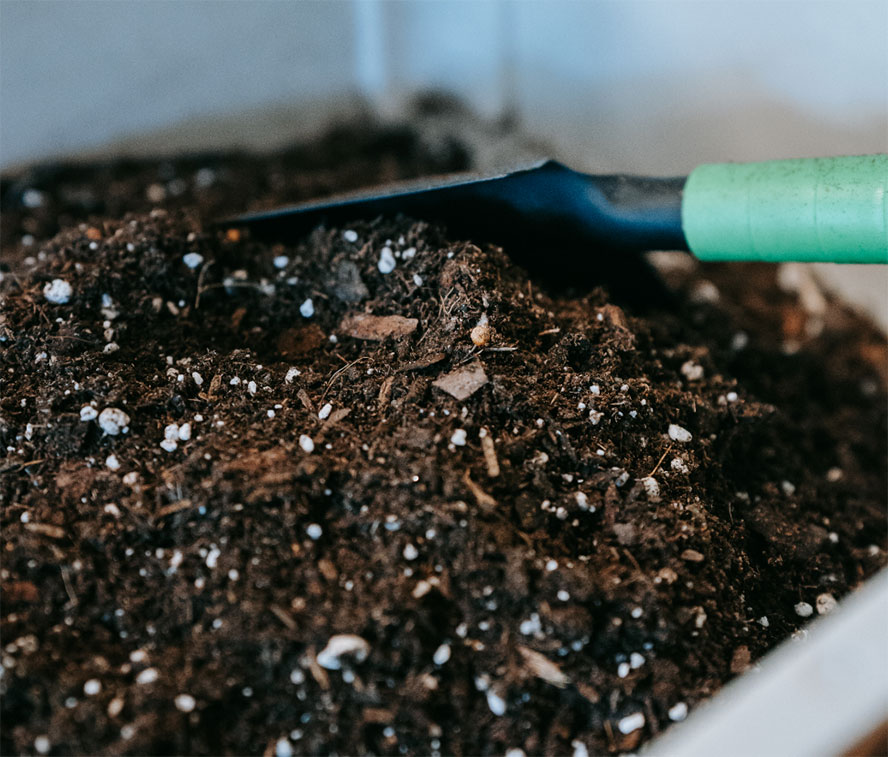
Another creative use of composted material involves using it as a mulch layer around trees and shrubs in urban landscapes. Mulching with compost will help retain moisture in the soil during periods of drought, protect tree roots from extreme temperature fluctuations, prevent crust formation on soils with high clay content, insulate against freezing temperatures during winter months, discourage weed growth by blocking light access to seeds germinating nearby, and add nutrients back into depleted soils over time. In addition to these benefits, mulching with compost has been shown to increase overall landscape aesthetics by creating more attractive environments for people to enjoy.
By utilizing composted materials creatively we not only contribute positively towards combatting climate change through reducing carbon emissions but also create beautiful spaces that improve the quality of life for communities everywhere. With this knowledge at hand there should be no question why we should all strive to learn how best utilize this valuable resource wherever possible.
Potential Long-Term Impacts On Climate Change
The potential long-term impacts of composting on climate change are profound. According to the US Environmental Protection Agency, food waste accounts for more than one quarter of all materials sent to landfills in America, which contribute a significant amount of methane gas – a potent greenhouse gas that contributes significantly to global warming. Composting can reduce this impact by diverting organic material away from landfills and instead converting it into nutrient-rich soil amendment or fertilizer for agricultural use.
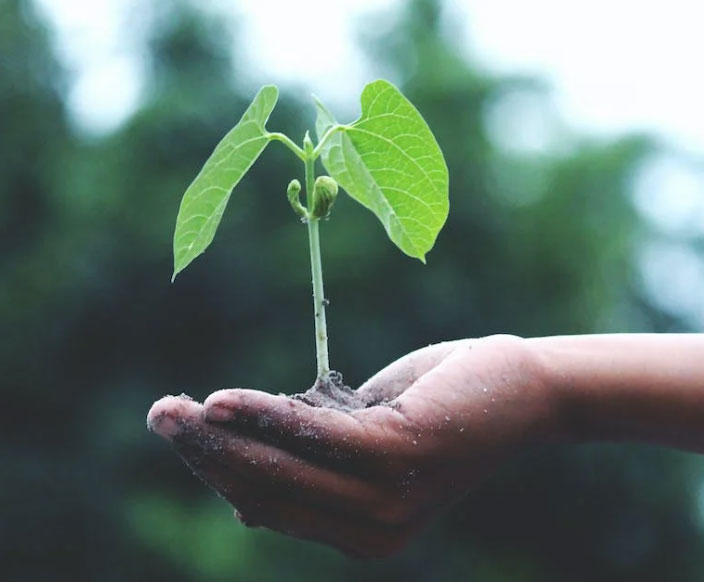
Composting also helps mitigate climate change through its ability to sequester carbon dioxide, allowing it to be stored naturally in the soil rather than released into the atmosphere. Studies have shown that increasing levels of carbon sequestration in soils could help reduce atmospheric temperatures over time, further offsetting the effects of global warming due to human activity.
Additionally, compost increases water retention as well as reducing erosion and runoff associated with rainfall events, helping protect against flooding and preserving surface water quality. This has considerable implications for both human health and economic development worldwide.
Wrapping Up
Composting is an effective and often overlooked tool in the fight against climate change. It offers multiple benefits, from improved plant growth to reduced greenhouse gases and carbon sequestration. Although composting may present certain challenges, creative solutions can be employed to maximize its potential. The long-term effects of increased composting could provide significant contributions towards reducing atmospheric pollution and global warming.
The importance of considering all available options for combatting climate change cannot be overstated. Composting should not only be viewed as a way to reduce food waste but also as an opportunity to create sustainable agriculture practices that lead to greater environmental protection. With careful implementation, composting can help decrease emissions while improving soil fertility and agricultural production.
Clearly, composting has great potential when it comes to mitigating the serious consequences of climate change on our planet. To ensure its successful utilization, proper attention must be paid to important considerations such as selecting appropriate materials and managing heat levels during decomposition processes. By taking these steps we stand a much better chance of improving soil health while at the same time helping reduce the environmental damage resulting from decades of unchecked human activity.